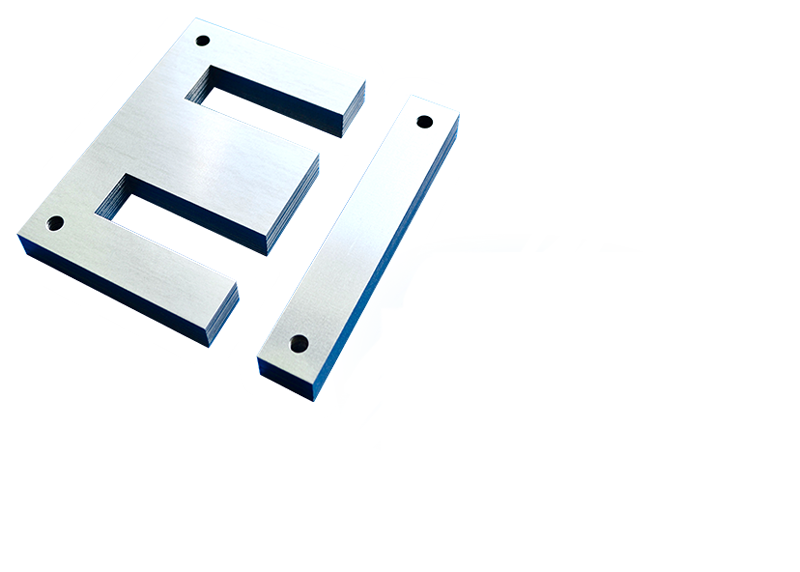Effect on eddy current losses
The thickness of silicon steel sheets is closely related to eddy current losses. When the thickness of silicon steel sheets increases, the loop area formed by eddy currents increases, and eddy current losses rise sharply. For example, if the thickness of silicon steel sheets is increased from \(0.3mm\) to \(0.6mm\), the eddy current losses will theoretically become 8 times the original value when other conditions remain unchanged. This will not only cause serious heating of the iron core when the motor is running, but also reduce the energy utilization rate of the motor, resulting in a large amount of electric energy waste. On the contrary, using thinner silicon steel sheets, such as the common \(0.2 – 0.3mm\) thickness, can effectively reduce the eddy current loop area, significantly reduce eddy current losses, and improve the operating efficiency of the motor.
Effect on magnetic permeability
Thinner silicon steel sheets have advantages in magnetic permeability. The crystal structure inside thin silicon steel sheets is relatively more uniform, and they are more easily magnetized under the action of the magnetic field generated by the motor, and can maintain a high and stable magnetic permeability. This allows the magnetic field to pass through the core more smoothly, reducing magnetic field distortion and magnetic leakage.
Comprehensive impact on the overall performance of the motor
From the perspective of the overall performance of the motor, the appropriate thickness of the silicon steel sheet is one of the key factors in optimizing the motor design. Although thinner silicon steel sheets can effectively reduce eddy current losses and increase magnetic permeability, too thin silicon steel sheets are more difficult to manufacture and stack, and the cost will increase accordingly. Moreover, too thin silicon steel sheets have relatively low mechanical strength, and under conditions such as high-speed operation of the motor, problems such as core deformation may occur. On the other hand, although thicker silicon steel sheets reduce the difficulty and cost of manufacturing to a certain extent, due to increased eddy current losses and unstable magnetic permeability, the motor will heat up severely and reduce efficiency, and long-term operation may also affect the service life of the motor.

